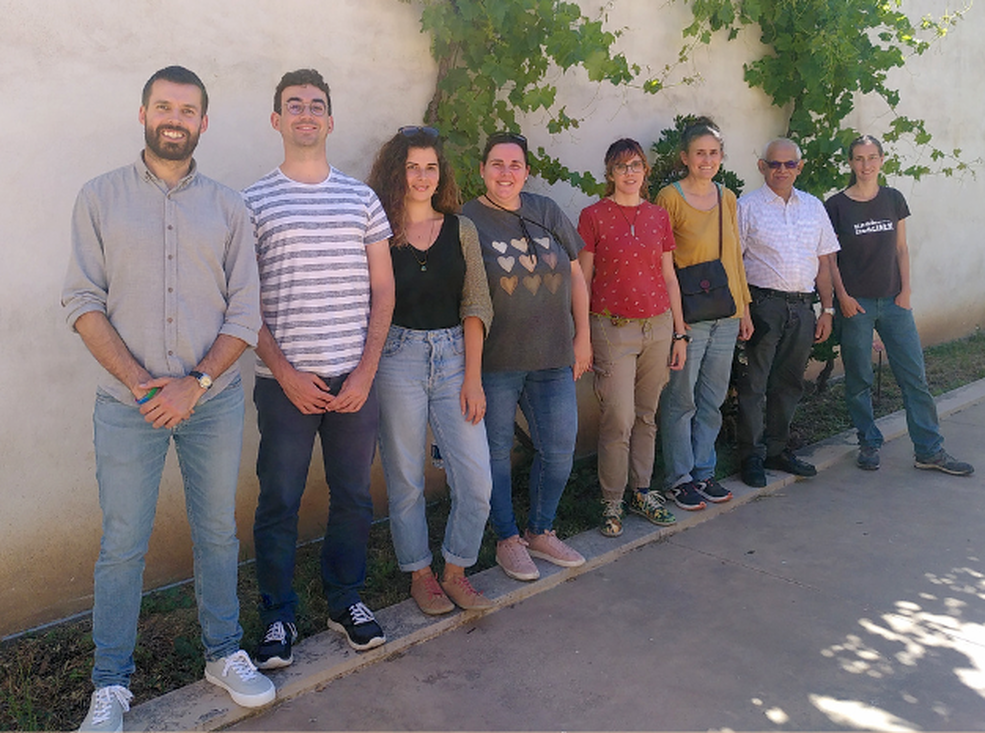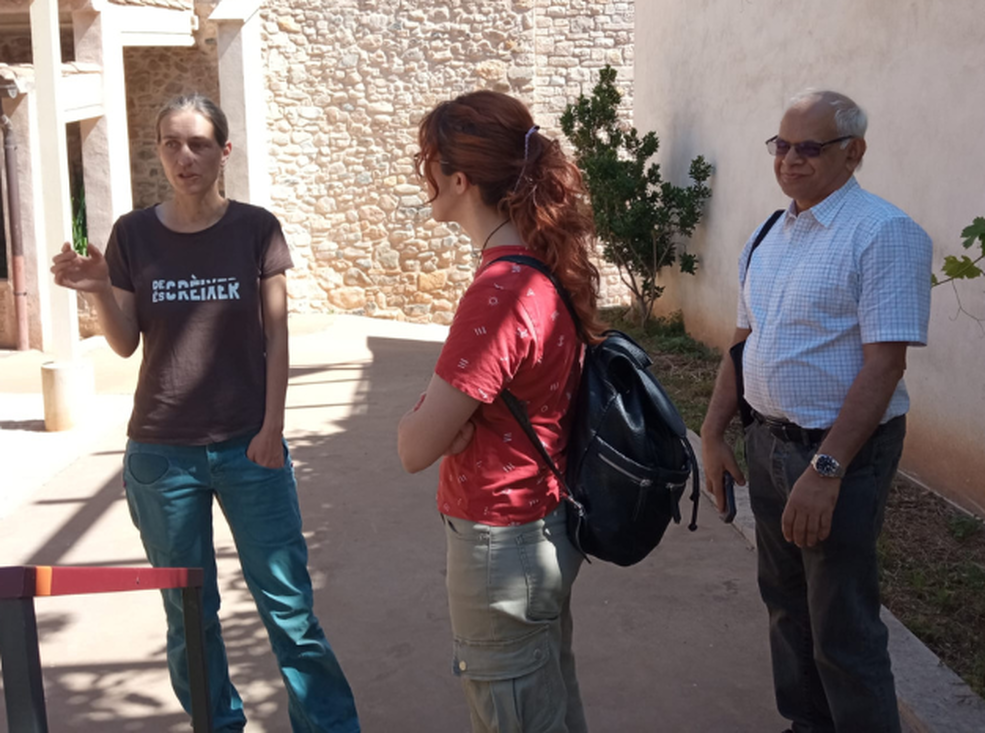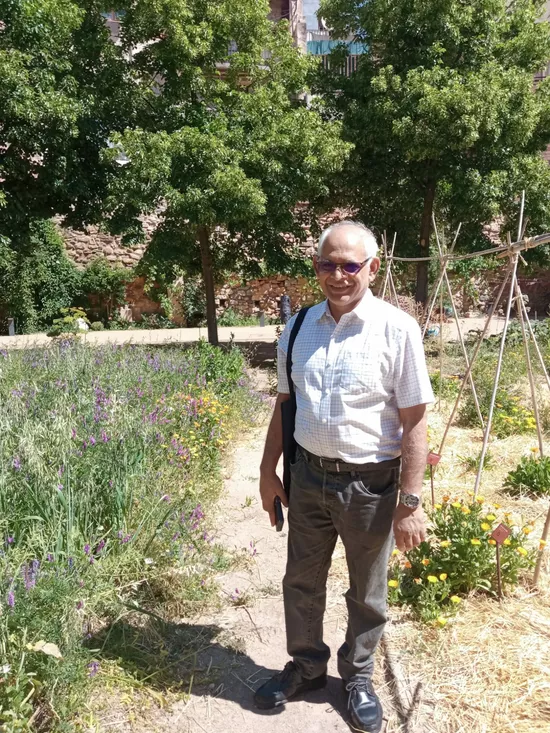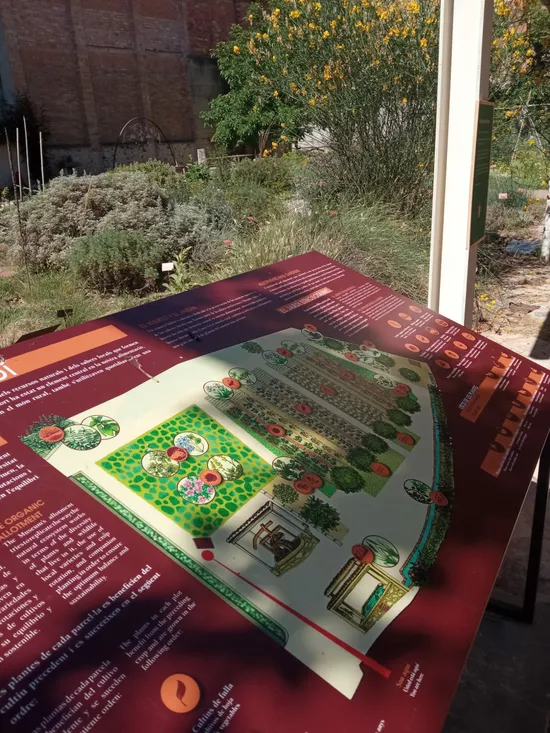IPHES-CERCA will develop teaching materials for educational centers in Catalunya, Illes Balears and Sri Lanka on the relationship between humans and plants throughout history
This action is part of the ARCHBOTANKA project financed by the European Union
Several members of the international consortium that are part of the ARCHBOTANKA project, financed by the European Union, visited this thursday the etnobotanical garden of the Museu de la Terra in Espluga de Francolí to learn first-hand about the teaching resources that are carried out in this space, designed, created and managed by the Els Corremarges cooperative. The exchange of knowledge with the different members of the consortium and the informative experience of the etnobotanical garden of the Museu de la Terra will be key when designing the new teaching materials contemplated in the ARCHBOTANKA project and which are intended to be available for educational centers in Catalonia, the Balearic Islands and Sri Lanka.
Teaching materials for educational centers
One of the objectives of the ARCHBOTANKA project is to create an educational resource that incorporates different aspects of the project such as archaeobotany, the study of fuel and the relationships between humans and plants throughout history. The main challenge of this resource is that it adapts to the curricular characteristics of educational centers both in Catalunya, Illes Balears and in Sri Lanka. Therefore, the design and content will be adapted to the characteristics of each of the countries so that they are as great as possible.
An excellent example
The visit of the various members of the ARCHBOTANKA project consortium to the etnobotanical garden of the Museu de la Terra in Espluga de Francolí has been very enriching since the activities and workshops developed by the Els Corremarges cooperative fully fit with the general objectives of the project and They will allow us to lay the foundations for these new proposed teaching materials.
During the visit, Natacha Filippi shared with the rest of the consortium members her knowledge about ethnobotany and also how they carry out the educational activities and workshops that they carry out in the garden to explain the multiple uses of plants both from the from a nutritional point of view, such as for the manufacture of tools, medicinal properties, for dyeing fabrics, etc.
Participating in the meeting were Dr. Ethel Allué, professor at the Universitat Rovira i Virgili, researcher at IPHES-CERCA and coordinator of ARCHBOTANKA, Andrea Alías, socialization technician at IPHES-CERCA, the team from the Fundació Jardí Botànic de Sóller- Museu Balear de Ciències Naturals, Sóller (MUCBO) and Prof. Chandraratne, from the University of Peradeniya (Sri Lanka), who is just doing a stay at IPHES-CERCA.
An international project financed by the European Union
The ARCHBOTANKA project, entitled “From the Mediterranean to the Indian Ocean through the harmony of fuel and archaeobotany”, (HORIZON-MSCA-2022-Staff Exchanges (GA 101130984) has received funding from the European Union with the aim of studying fuel management in the past, especially in tropical contexts and, in turn, facilitate the exchange of knowledge and research and technical personnel between the different participating institutions.
The ARCHBOTANKA project involves around twenty people (doctoral students, postdoctoral and senior researchers, technicians and members of non-academic entities) from the Universitat de les Illes Balears (Palma), the Unitat Mixta de Recerca Archéozoologie et Archéobotanique - Sociétés, Pratiques et Environnements (UMR 7209) of the Muséum National de Histoire Naturelle (Paris, France), of the University of Peranediya (Peranediya, Sri Lanka), of the MUCBO (Fundació Jardí Botànic de Sóller-Museu Balear de Ciències Naturals, Sóller) and the Els Corremarges cooperative (La Sala de Comalats, Tarragona).





